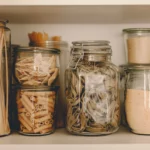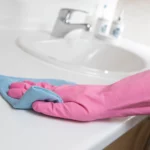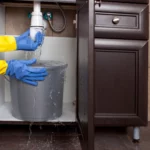
Can I Use Bathroom Cleaner in the Kitchen? Breaking the Myths
This post may contain affiliate links or Google Ads and we may earn a small commission when you click on the links at no additional cost to you. As an Amazon Affiliate, we earn from qualifying purchases. This is at no additional cost to you and helps with our website expenses.
“Can I use bathroom cleaner in the kitchen?” is a question that many of us have pondered while tackling our household chores.
Sure, it’s a quick-fix solution, but is it the right one? Well, to put it simply, different parts of your home have distinct cleaning needs.
Why it Matters: The Importance of Using the Right Cleaner in the Kitchen
Bathroom cleaners are specially formulated to handle typical bathroom troubles: soap scum, hard water stains, or that stubborn mildew.
The kitchen, on the other hand, faces a different set of challenges: food spills, grease splatters, and bacterial growth.
Can I Use Bathroom Cleaner in the Kitchen? The Kitchen vs. Bathroom Dilemma
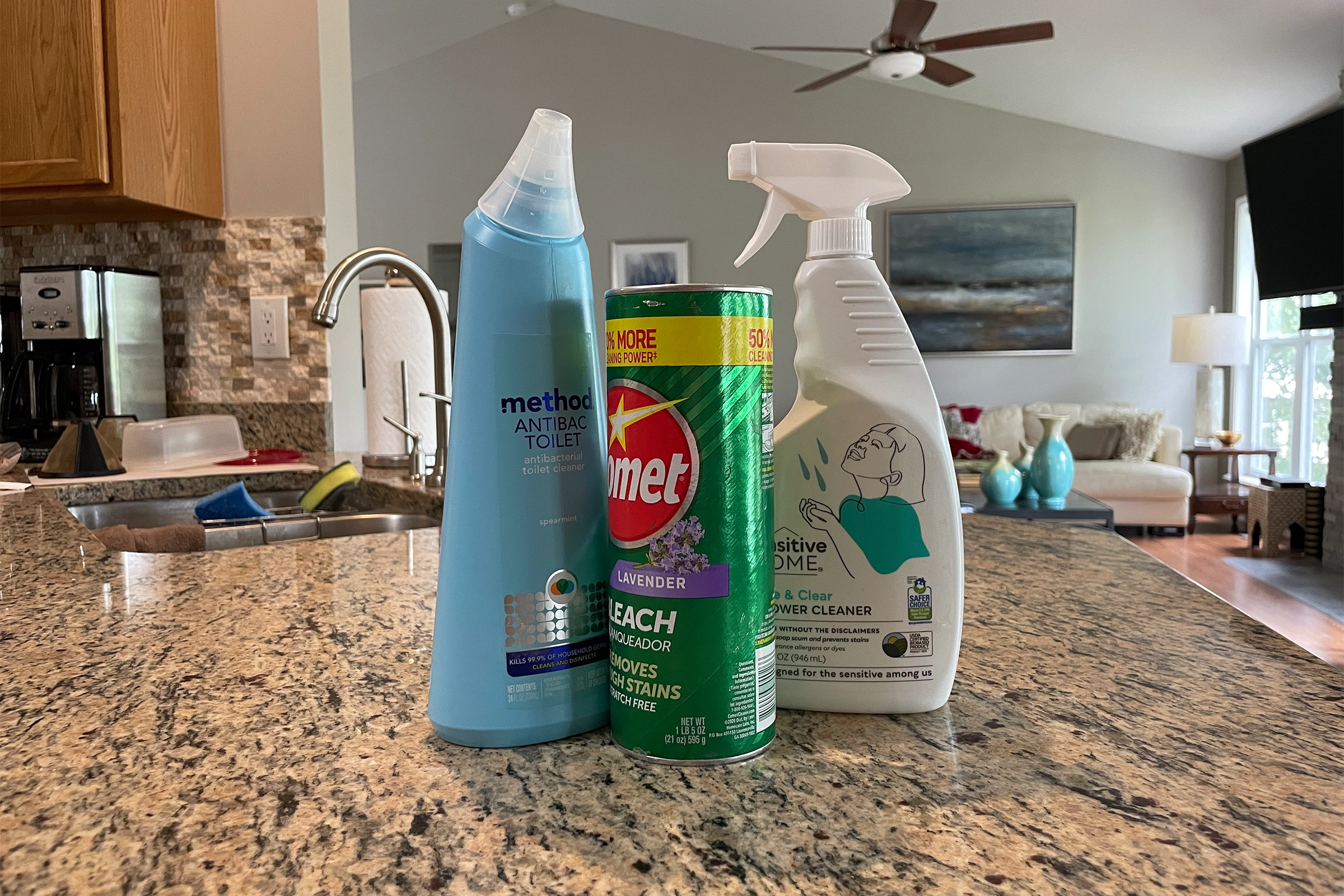
You might wonder if a heavy-duty bathroom cleaner can become your kitchen’s best friend. After all, if it can obliterate bathroom grime, it should power through kitchen messes, right?
But hold that thought! It’s not always as straightforward as it seems.
Understanding Different Types of Cleaners
Bathroom Cleaners: The Heavy-Duty Brigade
Bathroom cleaners come in various types, each designed to tackle specific problems. Here’s a short list to give you a snapshot:
- Bleach-Based Cleaners: These pack a punch and are highly effective at killing germs and removing tough stains. However, they can be corrosive and need to be used with caution.
- Acid-Based Cleaners: Typically used for hard water stains and mineral deposits, these cleaners can be harmful if not used properly due to their strong, often fuming acids.
- Disinfectants: These are essential in the bathroom for combating bacteria, viruses, and other microorganisms. Remember, though, not all disinfectants are safe for all surfaces.
- Natural/Organic Cleaners: Eco-friendly options made from natural ingredients. They may not be as potent as their chemical counterparts but are safer for you and the environment.
Kitchen Cleaners: The Grease-Fighting Heroes
Kitchen cleaners, on the other hand, are formulated differently. They primarily focus on food residue, grease, and ensuring surfaces are safe for food preparation. Here’s what’s typically in the arsenal:
- All-Purpose Cleaners: Great for a variety of surfaces and common kitchen messes. They’re your go-to for daily cleaning tasks like cleaning a messy kitchen pantry.
- Degreasers: Specifically formulated to break down oils and fats, they’re perfect for tackling that greasy stovetop or oven.
- Disinfectants: Yes, we have these in the kitchen too! They’re crucial for killing bacteria and ensuring food prep areas are safe.
- Natural/Organic Cleaners: Just like in the bathroom, these offer a gentler, eco-friendly approach to cleaning while being safe for areas that come into contact with food.
Can I Use Bathroom Cleaner in the Kitchen?
Safety, Effectiveness, and Material Compatibility
Having understood the main types of bathroom and kitchen cleaners, let’s circle back to our initial question: Can I use bathroom cleaner in the kitchen?
For the most part, it depends on the type of cleaner and the surfaces you’re dealing with. While bleach-based or acid-based bathroom cleaners might obliterate stains, they could also potentially damage sensitive kitchen surfaces or leave harmful residues.
Natural or organic bathroom cleaners are generally safer, but they might not be as effective against heavy grease or hardened food spills.
Disinfectants used in the bathroom can be used in the kitchen but be sure to check if they’re food-safe.
So, the short answer is – it’s not typically recommended to use bathroom cleaners in the kitchen. They’re just not formulated for the kind of messes we see in the kitchen, and their harsher components can do more harm than good.
Remember, it’s always best to use cleaners as they are intended and follow the directions on their labels. That’s your best bet for a clean, safe, and damage-free kitchen.
Alternative Cleaners for the Kitchen: Finding the Middle Ground

If you’re looking for versatile cleaners that can transition from the bathroom to the kitchen without causing havoc, consider multi-purpose cleaners.
These are formulated to be safe and effective on a variety of surfaces, making them a cost-effective and convenient choice for your cleaning needs.
Alternatively, natural cleaners like vinegar and baking soda are safe, effective, and can be used throughout your home.
For instance, a simple baking soda paste can scrub away tough stains, while a vinegar-water solution makes an excellent glass cleaner.
Ultimately, it’s about choosing the right tool for the job. And in this case, the ‘job’ is keeping your kitchen clean, safe, and ready for your culinary adventures.
So next time you’re tempted to grab that bathroom cleaner for your kitchen, remember the information shared here and make an informed choice. Your kitchen will thank you for it!
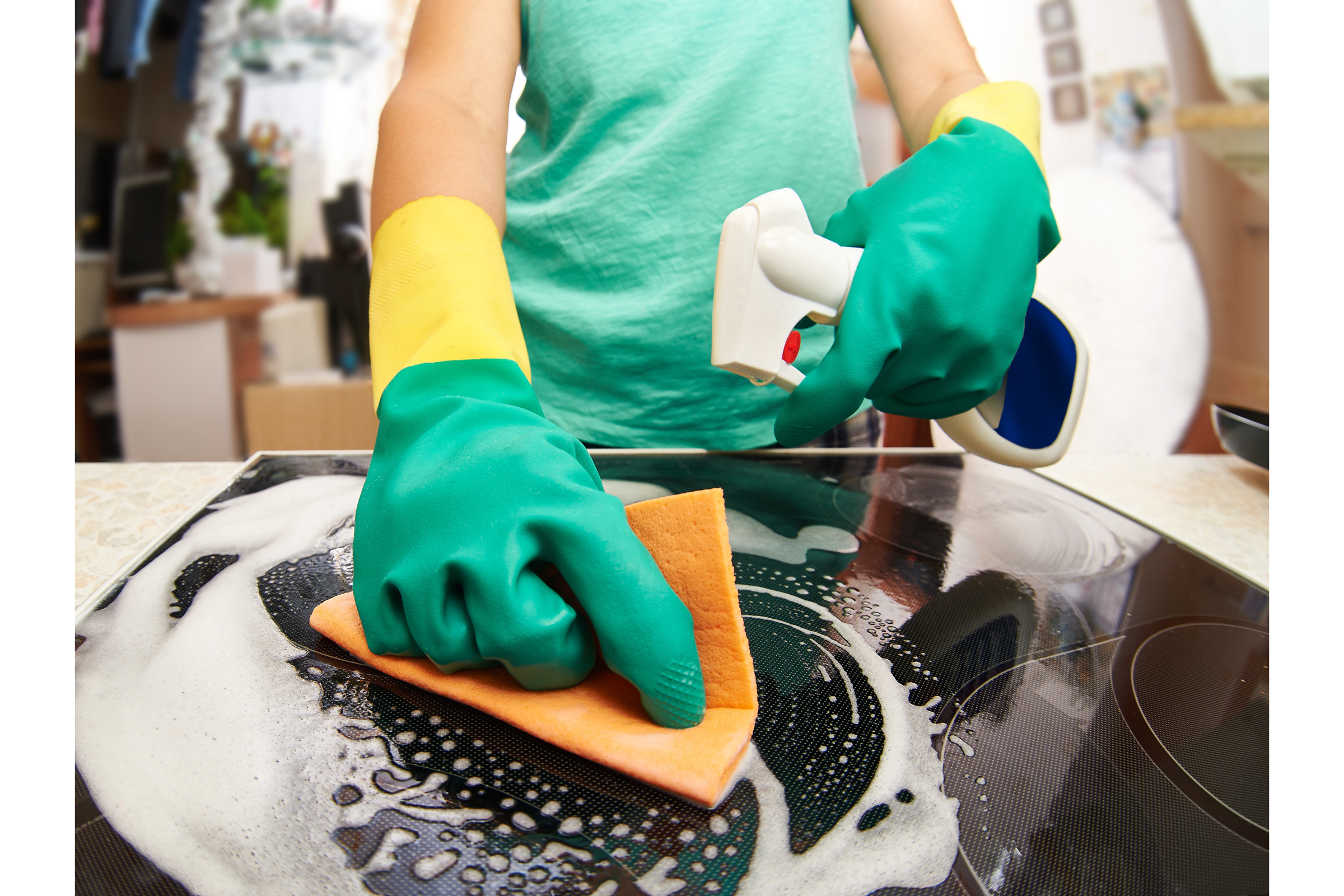
The Rule-Bender: Powdered Abrasive Cleaners
Even in the world of cleaning, some products can bend the rules. One such exception is powdered abrasive cleaners like Comet. These heavy-hitters can effectively clean both your bathroom and kitchen sinks.
How Do Powdered Abrasive Cleaners Work?
These cleaners function differently from your typical spray or liquid cleaner. They contain small particles that physically scrub away dirt and grime, making them champions at tackling stubborn stains and hardened messes.
Where Can You Use Them?
From banishing soap scum in your bathroom sink to clearing up food residues in your kitchen sink, abrasive cleaners are truly versatile. But remember, they’re not a one-size-fits-all solution. Here are some guidelines for using these cleaners:
- Test First: Abrasive cleaners can scratch some surfaces, especially shiny or glossy ones. Always do a spot test to ensure the cleaner won’t damage your surface.
- Rinse Thoroughly: After using an abrasive cleaner, rinse the surface well to ensure no powder residue is left behind. This is especially important in the kitchen, where residue could come into contact with food.
- Consider the Surface: They are generally safe for sturdy materials like porcelain or stainless steel. However, for softer, more sensitive surfaces, consider using a gentler cleaning method.
As you can see, while powdered abrasive cleaners can play in both the bathroom and kitchen fields, they should still be used with care. Even exceptions need to adhere to the golden rule of cleaning: use the right tool for the job!
Let’s Wrap it Up! Can I Use Bathroom Cleaner in the Kitchen?
Whether you’re reaching for a multi-purpose cleaner, a kitchen-specific degreaser, or even a homemade vinegar solution, remember that the right tool, or in this case, the right cleaner, makes all the difference.
So, next time you find yourself asking, “Can I use bathroom cleaner in the kitchen?” remember the information and tips shared in this guide. Your kitchen, and your health, will surely thank you for it!

